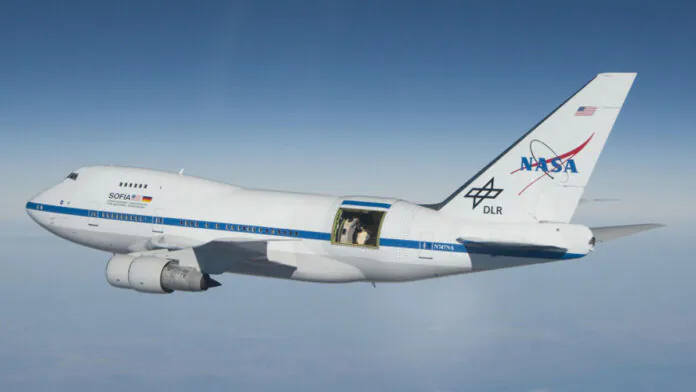© ROOT-NATION.com - Use of content is permitted with a backlink.
NASA and the German space agency DLR announced on April 28 that the Astrophysical Observatory will close in September. The agencies said that the flights of the Stratospheric Observatory For Infrared Astronomy (SOFIA) – Boeing 747 with a 2.7-meter infrared telescope mounted on the fuselage – will end no later than September 30, after the completion of its current expanded mission.
In recent years, the future of SOFIA has been questioned due to high operating costs. NASA spends about $85 million a year on SOFIA, which is more than on any other operational astrophysical mission except the Hubble Space Telescope. NASA proposed to stop funding SOFIA in its budget proposals for fiscal 2021 and 2022, but Congress resumed funding.
Decadal Survey on Astronomy and Astrophysics 2020, published in November, recommended NASA to close the SOFIA project, citing its high cost and limited scientific performance. “In terms of its value, SOFIA has not been a scientifically productive or influential project throughout its existence,” reads the final report of the review, in which NASA recommends shutting down SOFIA by 2023.

Representatives of the USRA argued in January that the Ten-Year Review based its findings on old information that did not reflect SOFIA’s increased scientific performance, such as increased observation time and increased number of publications. However, NASA needs an agreement with the DLR to move forward with the termination of SOFIA, as the German agency has a 20% stake in the program and its costs.
“SOFIA will complete the planned operations in fiscal year 2022, after which a planned closure will take place,” NASA said, and the collected data will be placed in online archives. About 70 more SOFIA flights are planned this year, including more than 30 flights during the southern deployment in New Zealand.
“The suspension of SOFIA flights is by no means the end of German-American cooperation,” Thomas Zurbuchen, Associate Administrator for the Science Mission Directorate at NASA, told DLR. He said the agencies would hold a joint seminar this summer to identify potential new projects “in future scientific fields.”
You can also help Ukraine fight with Russian occupants via Savelife or via an official page of the National Bank of Ukraine.
Read also:


